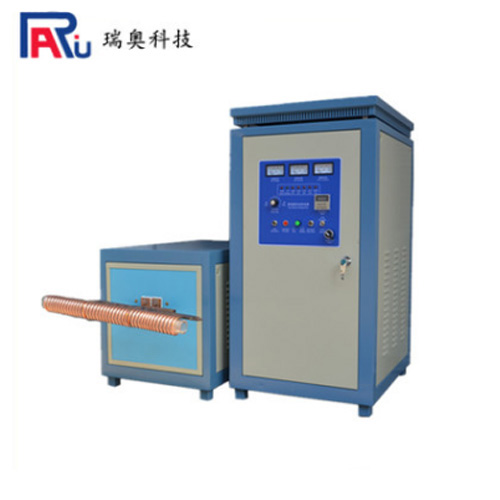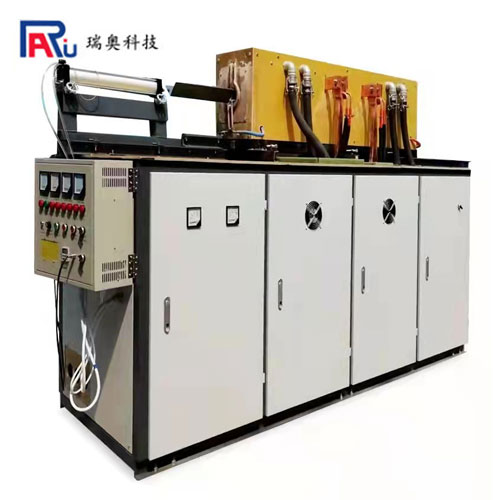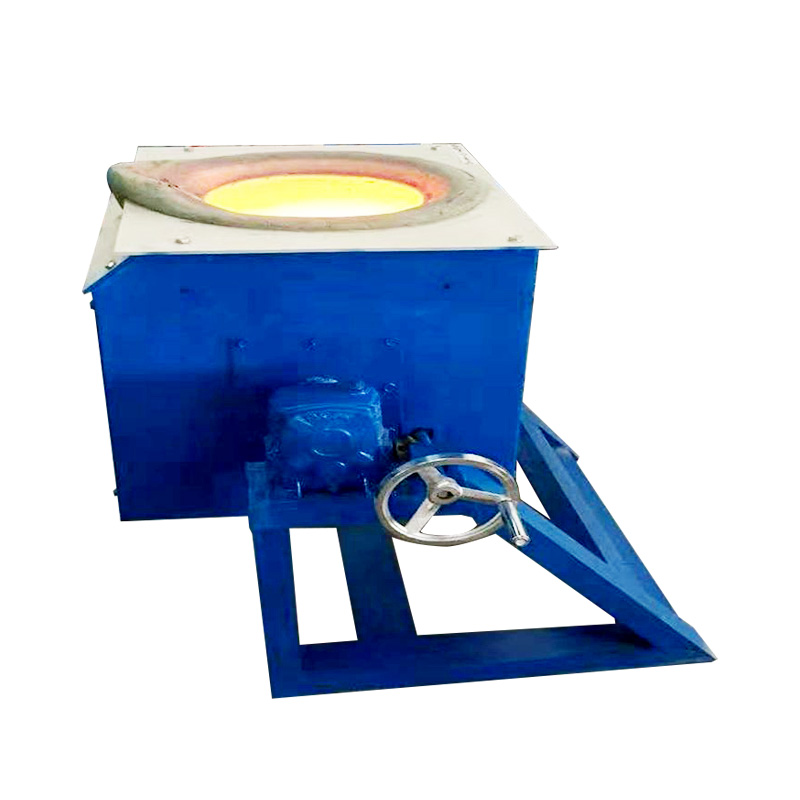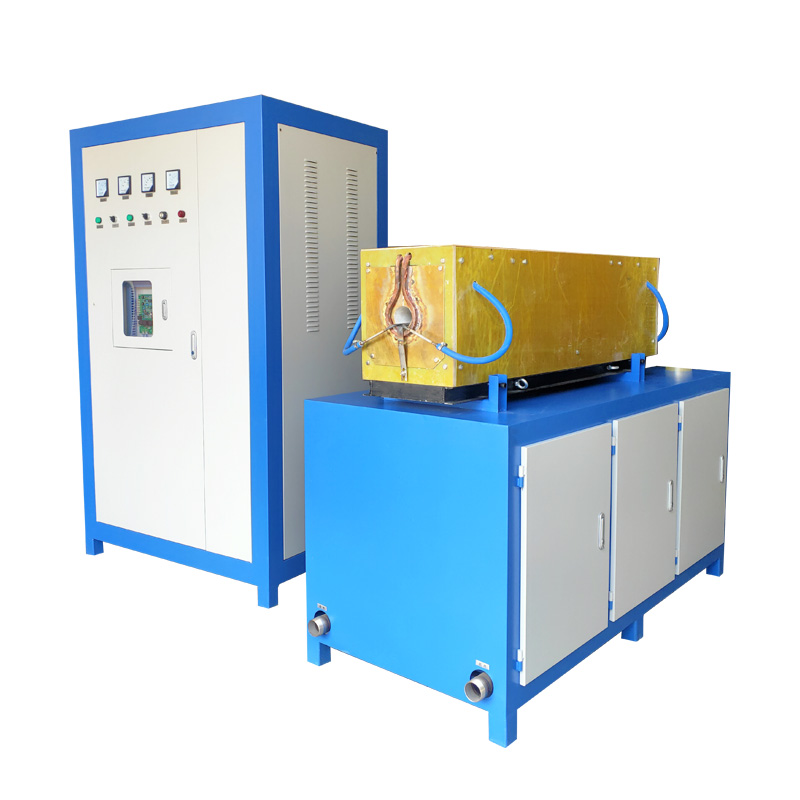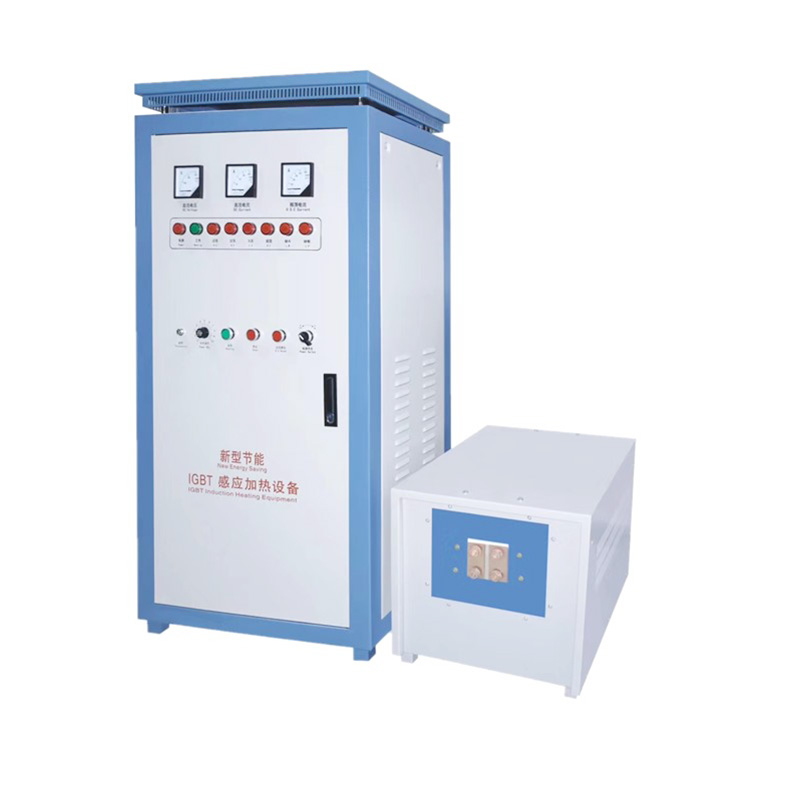Steel wire annealing and drawing equipment The outstanding advantages of high-frequency annealing equipment for iron wire:
1. Compared with traditional heating methods (oil, coal, gas), it has the obvious advantages of environmental protection, energy saving, convenient operation and low labor intensity;
2. Strong adaptability: it can heat workpieces with different shapes.
3. Energy saving compared with resistance furnace;
4. It has the advantages of fast heating, uniform heating, no oxide layer, and good product quality for customer products;
5. The sensor is isolated by the transformer, which is safe.
6. Environmental protection: no pollution, noise and dust.
7. Compared with thyristor intermediate frequency equipment, it is energy-saving and has no harmonic interference to the power grid;
8. The equipment occupies a small area, less than two square meters, which is convenient for customers to maximize the use of production space
How to choose induction heating equipment
Induction heating equipment can be roughly divided into super audio frequency induction heating equipment, high frequency induction heating equipment and medium frequency induction heating equipment according to different output frequencies. Different heating processes require different frequencies. If the wrong frequency selection cannot meet the heating requirements, such as slow heating time, low work efficiency, uneven heating, and the temperature does not meet the requirements, it is easy to cause damage to the workpiece.
To choose the frequency correctly, we must first understand the heating process requirements of the product. Generally speaking, there are several situations:
1 Heat penetration of workpieces For example, hot upsetting and hot rolling of fasteners, standard parts, auto parts, hardware tools, twist drills, etc., the larger the diameter of the workpiece, the lower the frequency should be.
∮4mm or less suitable for super audio (100-500KHZ)
4-16mm for high frequency (50-100KHZ)
16-40mm for IF (0.5-10KHZ)
Heat treatment, shafts, gears, quenching and annealing of stainless steel products, etc. Taking quenching as an example, the workpiece requires that the shallower the quenching layer, the higher the frequency, and the deeper the quenching layer, the lower the frequency.
The quenching layer is:
0.2-0.8mm for 100-250KHZ UHF
0-1.5mm for 40-50KHZ high frequency, super audio
1.5-2mm for 20-25KHZ super audio
2.0-3.0mm for 8-20KHZ super audio, intermediate frequency
3.0-5.0mm for 4-8KHZ IF
5.0-8.0mm for 2.5-4KHZ IF
 浙公網(wǎng)安備 33038102331513號(hào)
浙公網(wǎng)安備 33038102331513號(hào)

